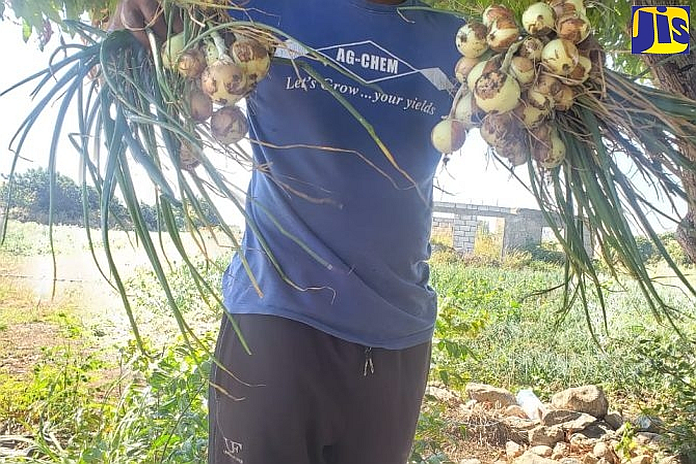By Twila Wheelan
KINGSTON, Jamaica, (JIS) – The agricultural sector has met 40 percent of the national demand for onions, surpassing the original target of 20 percent.
This means the production efforts resulted in farmers and suppliers producing roughly 4,000 tonnes of the demand of 10,000 tonnes last year.
The sector was also able to meet 70 percent of the national demand for potatoes, which moved from 15,000 to 17,000 tonnes.
Speaking at a recent Jamaica Information Service (JIS) ‘Think Tank’ session, agriculture and fisheries minister, Pearnel Charles Jr., expressed gratitude to the sector stakeholders for their dedication and hard work.
“I highlight those things to say thank you to the farmers, extension officers and to everyone who has believed in agriculture, which is improving and increasing. If you ask whether Jamaica is producing, we can have a resounding response in saying that we are producing our highest number of domestic crops ever,” he added.
Charles said that by improving the sector’s capacity to meet local demand, the Ministry is focusing on reducing the country’s import numbers.
“Even though our import numbers, in terms of value, remains very high, our numbers in terms of volume are being reduced,” he informed.
“Jamaica can be proud as a country. We can be proud with what we have done, what we are doing and what our projections are going forward,” the minister said.
Meanwhile, with the impact of the pandemic and the conflict in Ukraine on input costs and supply availability, the ministry has activated several strategies to help farmers. Efforts include the recent provision of over 24,000 bags of fertiliser to farmers across the island and a renewed focus on the Production Incentive Programme.
“In addition to the distribution of the fertilisers that we received from Morocco, we are also advancing, through RADA (Rural Agricultural Development Authority) programmes, to train our farmers around compost development. [This would allow] them to use local and farm materials to reduce their reliance on chemical fertilisers. We also know that using the local materials has proven to promote higher yields of agricultural crops and healthier soil structure,” minister Charles said.





